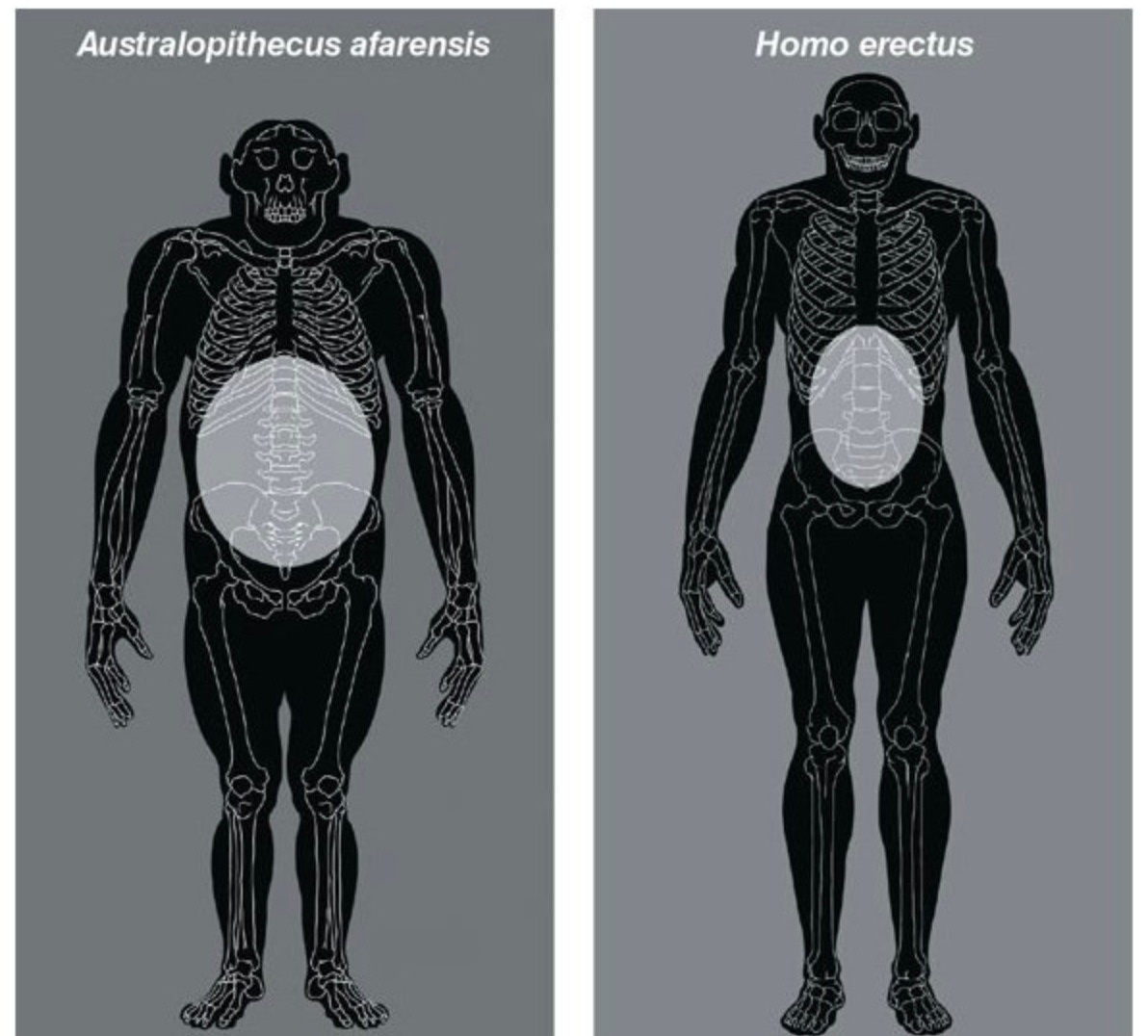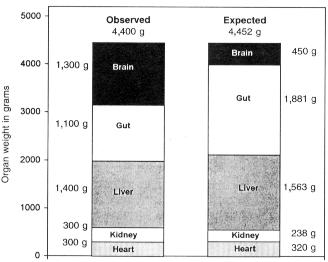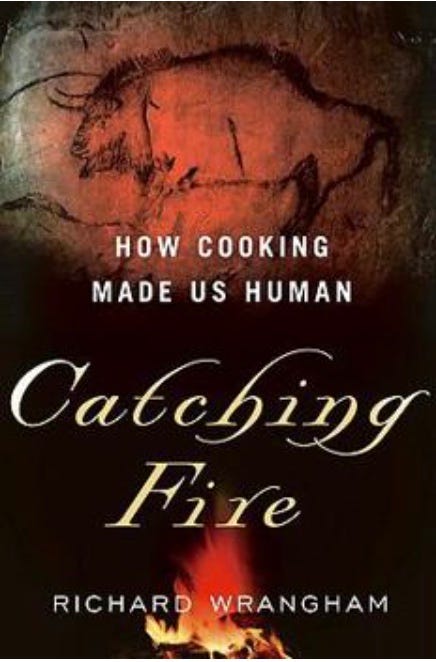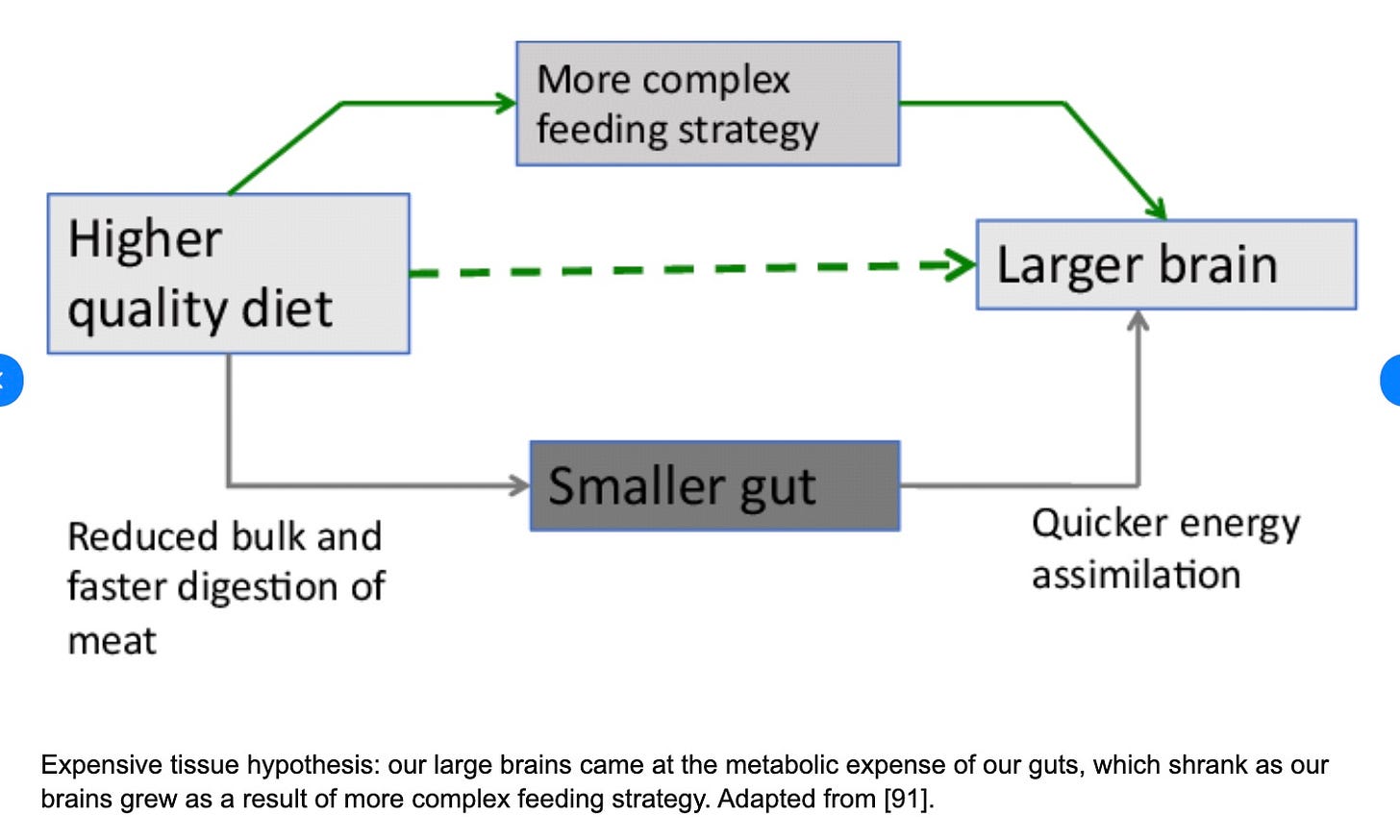The Gut Shrinks, the Brain Wins
Salads never built civilizations.
Humans carry an absurdly expensive organ: the brain. At just three pounds, it hoards 20% of your calories, more than any other primate. But where did the energy come from to feed it?
I’m sitting at a cafe with Mr. Skeptical, who coughs and adds, “Most humans use 20% of calories for brain power, but you’re at about 10% right?”
I decide to ignore the snarky comment.
Subconscious Fat at 30,000 feet
In 1995, anthropologist Leslie Aiello and paleoanthropologist Peter Wheeler proposed a bold idea. They noticed something odd: compared to apes, humans have smaller guts but bigger brains. Since energy isn’t infinite, they argued that one organ must have “paid the bill” for another.
The gut shrank. The brain grew.
In other words, before we had any real thinking, or the phrase ‘I think, therefore I am, we had, ‘I cook, therefore I am.’
“Aren’t you taking things too far?” asks Mr. Skeptical.
“No. This isn’t some silly thought experiment, and it’s known as the Expensive Tissue Hypothesis. It’s also consistent throughout evolution. For example, primates with smaller guts have larger brains. Aiello and Wheeler were able to show consistently that a smaller gut often but not always created a bigger brain.”
“So sometimes if the gut is smaller, the brain doesn’t get bigger?”
“Exactly. Some birds with smaller guts would still do a trade-off, but instead of getting a bigger brain, they’d get bigger wings.”
“So, there is some truth to someone who’s dumb being a birdbrain?”
“Some truth, yes, but I’d argue some birds like ravens are brilliant.”
Subconscious Fat at 10,000 feet
Compared to apes, humans have a much shorter colon and a much longer small intestine. Apes ferment leaves and fiber into calories. We can’t. Our downsized gut is built for calorie-dense, easily digested food: fat, protein, and cooked starch.
“Are you saying gorillas are smarter if they chew longer?” Mr. Skeptical asks.
“Not quite. Gorillas are brilliant at being gorillas. But their massive fermenting colons are what fuel their brains. Ours shrank to make room for intelligence. We stopped being fermentation vats. We became hunters.
“This trade-off matters: biology doesn’t shrink organs for no reason. A smaller gut and a bigger brain only make sense if high-quality food—meat and marrow—was consistently on the menu. According to Ricard Wrangham, a Harvard professor of biological anthropology, who wrote the book Catching Fire, it was really the cooking of meat that allowed us to become human.”
Subconscious Fat at Eye-Level
Let’s connect this to today. Modern nutrition treats plant-based diets as equally natural as meat-based ones. But if the Expensive Tissue Hypothesis is correct, then plants were never the main course—they were the side dish. What I like to call “Filler Foods.”
Look at the details:
A chimp’s colon makes up half its digestive tract; ours makes up only one-fifth.
We absorb nutrients fast in a long small intestine, a design for dense food.
Our brains run on glucose, sure, but thrive just as well—often better—on ketones from fat.
“Then vegans are fighting biology?” Mr. Skeptical presses.
“Not fighting—just outsourcing. Supplements, fortification, and industrial processing allow survival without animal foods. But “survival” is not the same as thriving. Our ancestors didn’t evolve on B12 tablets and algae oil. They evolved with spears and marrow bones.”
“Wait,” Mr. Skeptical cuts in, “are you saying kale killed intelligence?”
“Not exactly. But the more meat our ancestors ate, the less time they needed to spend chewing leaves. Meat is rich in fat and protein, meaning less digestive machinery is required. The gut got shorter. The jaw shrank. The teeth softened. And the brain exploded in size, making us storytellers, toolmakers, and (unfortunately) TikTok addicts.”
Sometimes I wonder if Mr. Skeptical’s brain missed the meat memo.
Practical Suggestions and Conclusions
The Expensive Tissue Hypothesis isn’t a dusty academic idea. It’s a blueprint for how to eat like the humans we are:
Prioritize nutrient density. Animal foods—meat, fat, eggs, seafood—aren’t optional; they’re foundational.
Stop worshipping fiber. Our guts aren’t designed for endless plant fermentation. Some plants are helpful, but they’re not the base of the pyramid.
Think evolutionary, not industrial. If your diet requires lab supplements to fill nutritional gaps, it’s probably not ancestral.
“Fine,” Mr. Skeptical sighs, “but I’m still ordering the salad.”
“And I’ll still be the one remembering where we parked the car.”
Be aware.
Other links related to this post:
Omnivores Survive, But Carnivores Thrive
Evolution: It Seeps Into Everything
Does What We Eat Affect Mental Health? PS Links on LinkedIn, Facebook, Instagram, X, and Notes. Full disclosure: ChatGPT was used to research and enhance this post.





Civilization IS fat.
For example, Putin eats lean meat, Trump eats fatty hamburger. The Barbarians are coming! Get ready to lose weight!